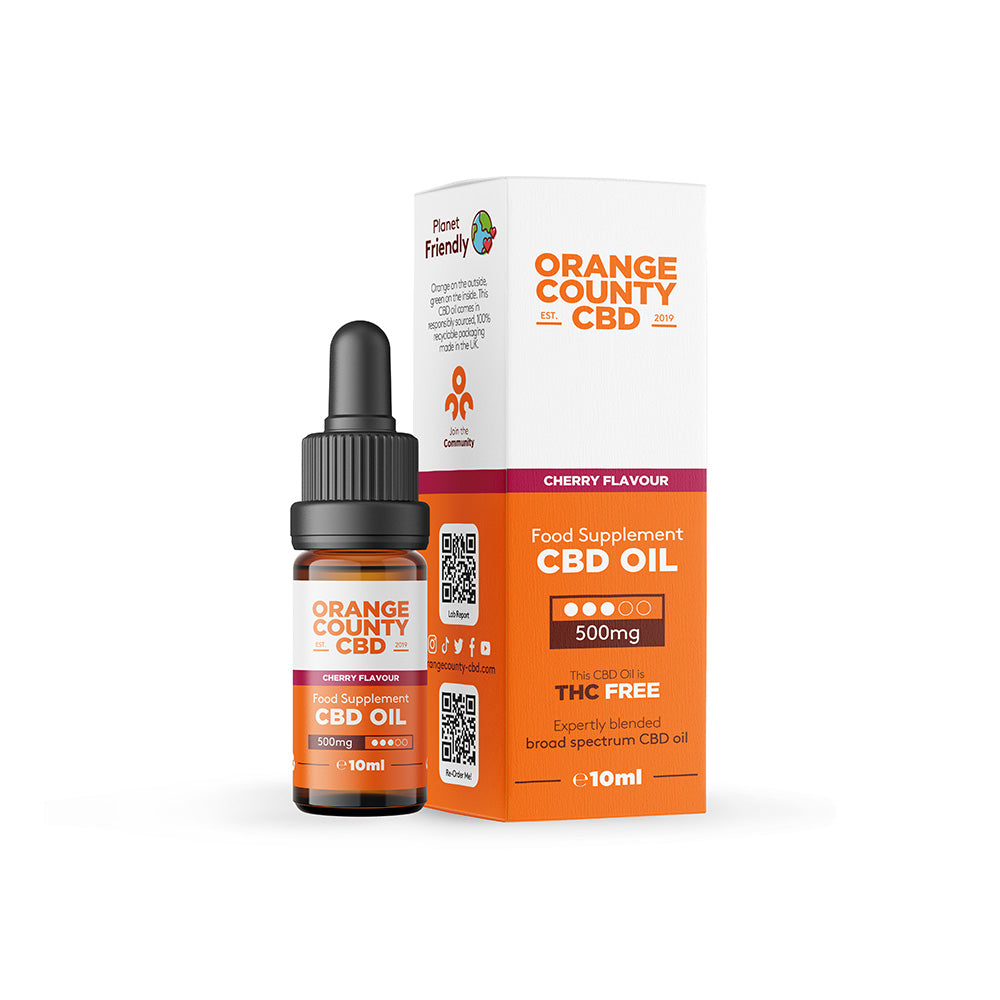CBD for IBS: Does it Help?


Living with Irritable Bowel Syndrome (IBS) can be challenging due to its unpredictable symptoms like abdominal pain, bloating, diarrhoea or constipation. With ongoing research, cannabidiol (CBD), a non-psychoactive compound derived from cannabis, is gaining interest as a potential natural way to ease these symptoms. At Orange County CBD, we are committed to transparency and quality to support your wellness journey. This guide explores how CBD might help with IBS, backed by scientific findings, and offers practical advice on usage and product selection.
Table of Contents:[hide]
What is IBS and how does it affect you?
IBS is a chronic gastrointestinal disorder marked by abdominal discomfort, altered bowel habits, and visceral hypersensitivity. The symptoms can be severe for many, impacting daily life significantly. It includes subtypes such as IBS with diarrhoea (IBS-D), constipation (IBS-C), or a mixed form (IBS-M). The underlying causes are complex, involving gut motility issues, low-grade intestinal inflammation, and dysregulation of the gut-brain axis. Anxiety and stress often exacerbate these symptoms, creating a cycle that is difficult to manage. Conventional treatments focus mainly on symptom control, with limited options targeting the root dysfunctions.

Understanding CBD and its relation to IBS
Cannabidiol (CBD) is a safe, non-intoxicating compound extracted from organically grown hemp, known for its anti-inflammatory, analgesic, and anxiolytic properties. Unlike THC, it doesn’t produce a ‘high’. CBD interacts with the body's endocannabinoid system (ECS), which regulates digestive functions such as motility, secretion, inflammation, and visceral pain. This interaction provides a scientific rationale supporting CBD’s potential to alleviate IBS symptoms through modulation of ECS receptors, specifically CB1 and CB2, and related pathways.
How CBD may help manage IBS symptoms
Anti-inflammatory effects
CBD has demonstrated an ability to reduce inflammation by affecting immune responses in the gut, which may ease chronic low-grade inflammation common in IBS [1]. This reduction in inflammation can help relieve discomfort and improve gut health.
Pain relief
Abdominal pain arises from hypersensitive nerve fibers in the intestinal tract. CBD likely modulates pain pathways by activating cannabinoid receptors and desensitising pain-related receptors like TRPV1, reducing visceral hypersensitivity [1].
Regulating gut motility
IBS patients often experience disturbed gut motility, causing diarrhoea or constipation. CBD’s effect on ECS receptors can stabilise intestinal contractions and transit, potentially normalising bowel movements. Preclinical studies provide some support, though clinical evidence remains limited [2].
Anxiety and stress reduction
Stress and anxiety play a significant role in worsening IBS symptoms. CBD interacts with serotonin receptors (e.g., 5-HT1A), promoting anxiolytic effects that can help break the vicious cycle of stress-induced flare-ups.
Which type of CBD is best for IBS?
There are three main CBD types:
-
Full-spectrum CBD contains multiple cannabinoids including trace THC, terpenes, and flavonoids, possibly enhancing effects via the entourage effect.
-
Broad-spectrum CBD includes cannabinoids and terpenes but no THC.
-
CBD isolates contain pure CBD only.
Research suggests full-spectrum or broad-spectrum products may offer more comprehensive symptom relief for IBS compared to isolates.

How to dose and use CBD for IBS
CBD dosing is highly individual. It’s recommended to start with a low dose (e.g., 5–10mg daily) and gradually increase while monitoring symptom changes and tolerance. Effects from edibles or oils may take 1–2 hours to manifest, so avoid re-dosing too soon.
Consulting with a healthcare professional, especially if on other medications, is crucial since CBD can interact with pharmaceuticals [2]. Consistency in dosing may improve long-term symptom management.
Safety and potential side effects to consider
CBD is generally well tolerated, but mild adverse effects can include fatigue, dry mouth, changes in appetite, and diarrhoea. Some users may experience worsened IBS symptoms like diarrhoea, so close monitoring is important when starting [2].
Choose high-quality, third-party tested products free from GMOs and contaminants to minimise risks. Avoid use during pregnancy or breastfeeding, and discuss any concerns with your doctor.
Should you try CBD for IBS?
Current evidence supports the potential of CBD to reduce IBS symptoms, particularly inflammation, pain, gut motility issues, and anxiety. However, clinical trials are limited and more research is needed to confirm efficacy and optimal dosing.
If you suffer from IBS and conventional treatments have not provided enough relief, CBD might offer a complementary approach as part of a personalised wellness plan. Always consult a healthcare professional before starting CBD, especially if you take other medicines.
Being patient and choosing high-quality, lab-tested CBD products are key to a positive experience.
Try Orange County CBD for IBS Support
Our CBD oils and CBD gummies are independently lab-tested to ensure purity, potency, and legality under UK law. Made from organically grown hemp sourced in the USA and manufactured at our UK facility with care, they may support your digestive health journey safely and effectively.
Explore our range today and take a step towards calming your IBS symptoms naturally.
Research
[1] - "Irritable Bowel Syndrome: Manipulating the Endocannabinoid System as First-Line Treatment." Frontiers in Neuroscience, 2020. https://pmc.ncbi.nlm.nih.gov/articles/PMC7186328/
[2] - "Cannabidiol and Intestinal Motility: a Systematic Review." Current Developments in Nutrition, 2023. https://pmc.ncbi.nlm.nih.gov/articles/PMC10541995/

